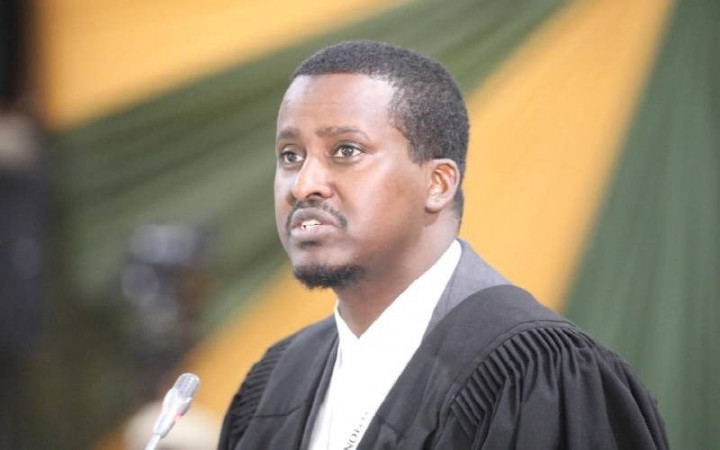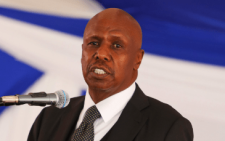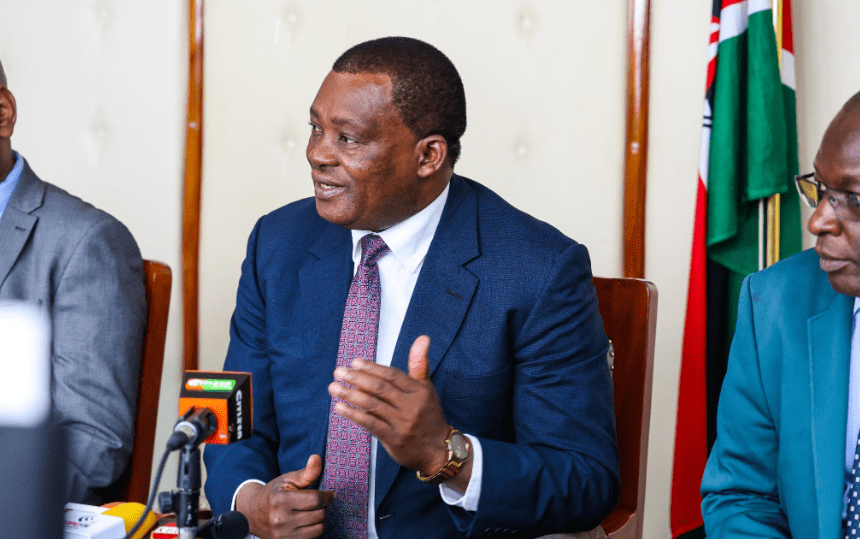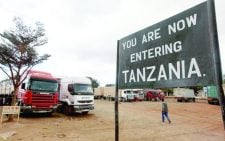Mahat, Havard alumnus who won IEBC case at petition court

The Independent Electoral and Boundaries Commission’s (IEBC) presidential figures received notable endorsement by the Supreme Court vindicating an electoral agency vilified for years for obscurity in the way it compiled its numbers.
Five years ago, the electoral agency hit rock bottom after the same court nullified the presidential elections, indicting it for overseeing massive irregularities and illegalities and for failing the verifiability and transparency test in tallying results.
However, in this year’s petition, the IEBC presented a solid case not only to defend their results transmission systems and servers but also to prove the veracity of the figures they used to arrive at the winner of the polls.
This daunting task fell on a youthful lawyer Mohat Somane, University of Nairobi trained lawyer with a Masters of Law from Harvard University, whose clarity in presenting the commission’s figures earned him praise from colleagues and the court for being precise and detailed.
Somane, who holds two masters from Harvard University; Master of Laws and Master of Public Policy, was entrusted with the same job he had done in 2017 although then his efforts did not bear much fruit as the court focused on the IEBC’s electoral processes rather than its figures when it nullified the results.
This year, however, the contest in court was more on the final results rather than the processes and gave him a better opportunity to convince the court on the verifiability and accuracy of its results.
Mahat’s job was to respond to allegations of differences between Forms 34As in the portal and the physical forms, discrepancies in votes cast for president, governor and the other positions and voter suppression claims in areas elections for other seats were postponed a day to the August 9 polls.
Through lawyer Philip Murgor, the petitioners had claimed that a group of hackers in Karen had hacked into the system and were plucking the forms from the portal, changing figures before returning them.
Mahat countered the claims defending the impenetrability of the portal while displaying the security features put in place to ensure the forms were not interfered with. “Someone is telling you someone captured a form, amended it and returned it. I’m telling you all my forms have a date and time stamp to the millisecond and there is no one form that has been transmitted at the same time,” said Somane, who was among a litany of lawyers contracted by IEBC to defend it as it faced yet another petition challenging its presidential figures.
In 2017, the commission lost a petition lodged by Raila and was heavily indicted for overseeing electoral malpractices found to have had an impact in the outcome.
This time, it came to court prepared with loads of data which they presented to the top court in defence of their systems and figures.
When Julie Soweto, one of Raila’s lawyers, presented to the court what she claimed was adequate proof a Venezuelan Jose Camargo had been interfering with the results leaving his name in some of the forms, it fell on Mahat to defend the electoral body.
He told the court the image of the Form 34A belonging Gacharaigu Primary School in Murang’a had been taken on top of an envelope that had Carmago’s name. A similar envelope with the name was presented to the court.
On Monday, the judges termed Soweto’s claims “hot air” and an attempt to engage them in a wild goose chase.
Sowetto had also claimed two Kiems kits with similar serial numbers had sent results to the portal but Mahat also had a response that was eventually accepted by the court.
“We are satisfied the two kits had other identifier features that were markedly different including the time stamps and polling code and therefore nothing turns on this anomaly,” said the court in its abridged judgment.
It was also Mahat who exposed the forged transmission logs submitted in court by John Mark Githongo to attempt to show how IEBC servers were hacked. He told the court some of the logs presented had been part of the 2017 case.
On Monday, the Court also agreed with him accusing Githongo of forging some of them in an attempt to build a case against the commission.
“A review of some of the logs presented show that they were either from logs arising from 2017 presidential election or were outright forgeries, in our considered view, there was no evidence of a man in the middle server configured to the IEBC’s VPN network and no evidence was produced to show that chairperson of IEBC and staff were part of the arranged conspiracy to stage the transmission process,” the court said.











